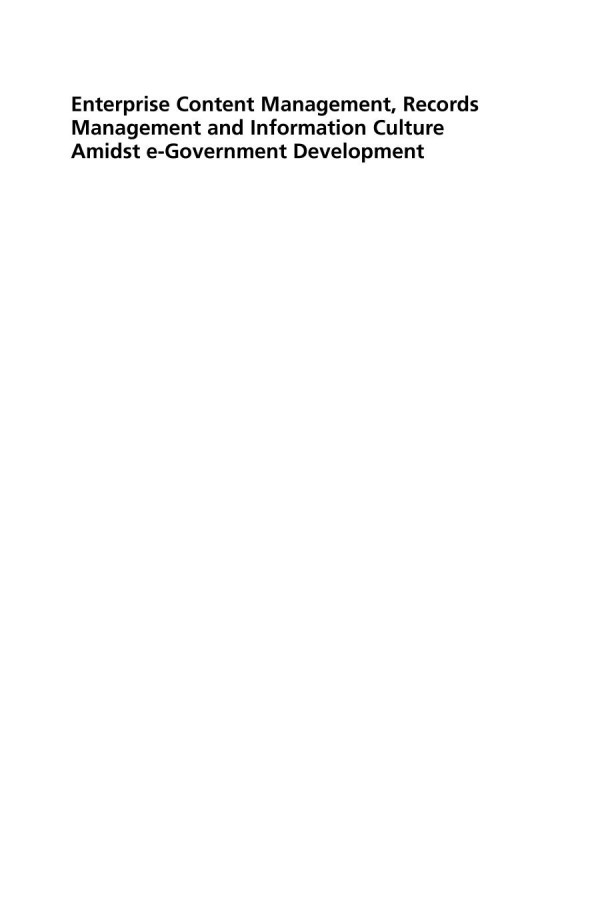

Most ebook files are in PDF format, so you can easily read them using various software such as Foxit Reader or directly on the Google Chrome browser.
Some ebook files are released by publishers in other formats such as .awz, .mobi, .epub, .fb2, etc. You may need to install specific software to read these formats on mobile/PC, such as Calibre.
Please read the tutorial at this link. https://ebooknice.com/page/post?id=faq
We offer FREE conversion to the popular formats you request; however, this may take some time. Therefore, right after payment, please email us, and we will try to provide the service as quickly as possible.
For some exceptional file formats or broken links (if any), please refrain from opening any disputes. Instead, email us first, and we will try to assist within a maximum of 6 hours.
EbookNice Team

Status:
Available4.6
19 reviewsThis book identifies key factors necessary for a well-functioning information infrastructure and explores how information culture impacts the management of public information, stressing the need for a proactive and holistic information management approach amidst e-Government development.
In an effort to deal with an organization's scattered information resources, Enterprise Content Management, Records Management and Information Culture Amidst E-Government Development investigates the key differences between Enterprise Content Management (ECM) and Records Management (RM), the impact of e-Government development on information management and the role of information in enhancing accountability and transparency of government institutions. The book hence identifies factors that contribute to a well-functioning information infrastructure and further explores how information culture impacts the management of public information. It highlights the Records Continuum Model (RCM) thinking as a more progressive way of managing digital information in an era of pluralization of government information. It also emphasizes the need for information/records management skills amidst e-Government development. Ideas about records, information, and content management have fundamentally changed and developed because of increasing digitalization. Though not fully harmonized, these new ideas commonly stress and underpin the need for a proactive and holistic information management approach. The proactive approach entails planning for the management of the entire information continuum before the information is created. For private enterprises and government institutions endeavoring to meet new information demands from customers, citizens and the society at large, such an approach is a prerequisite for accomplishing their missions. It could be argued that information is and has always been essential to all human activities and we are witnessing a transformation of the information landscape.